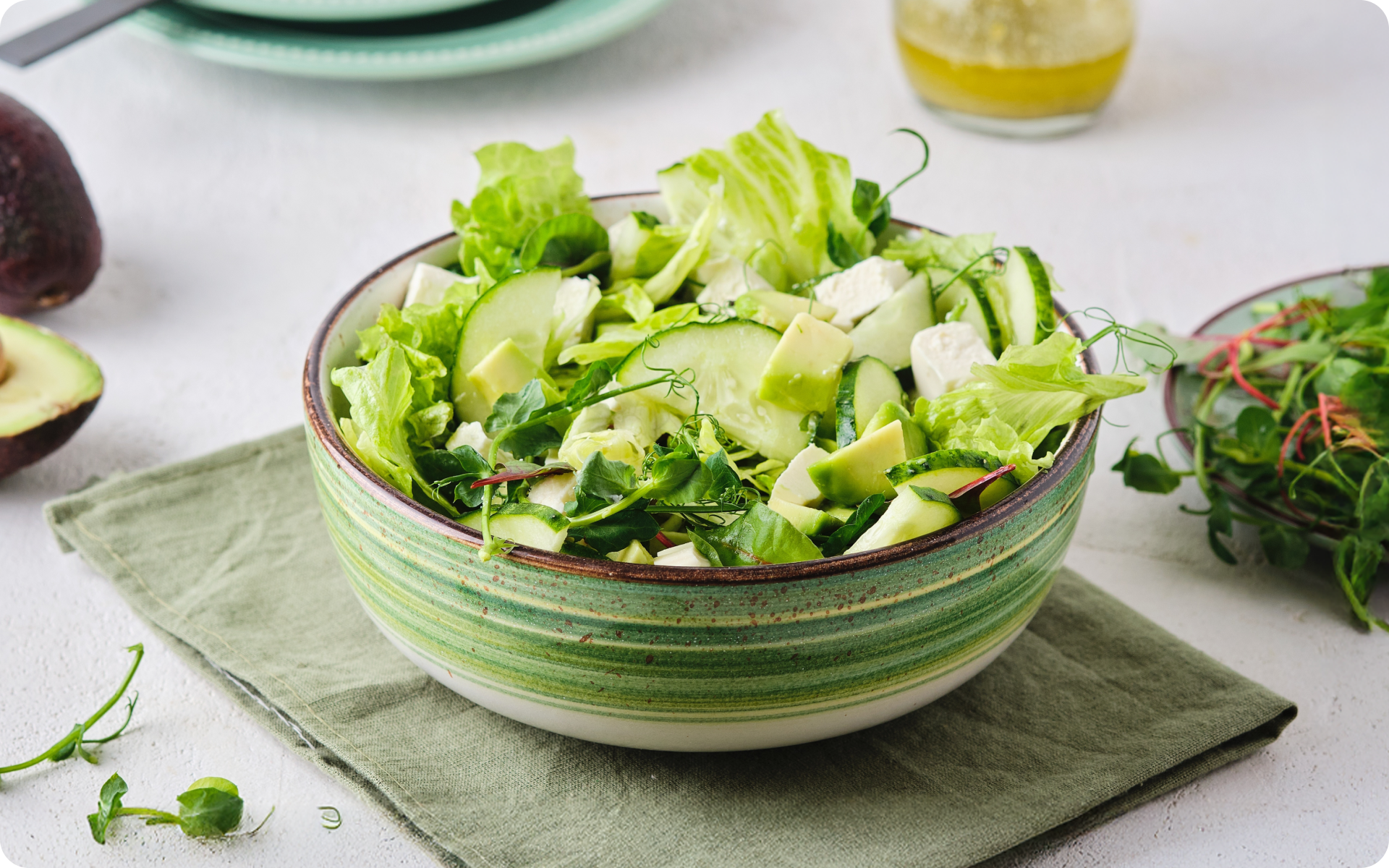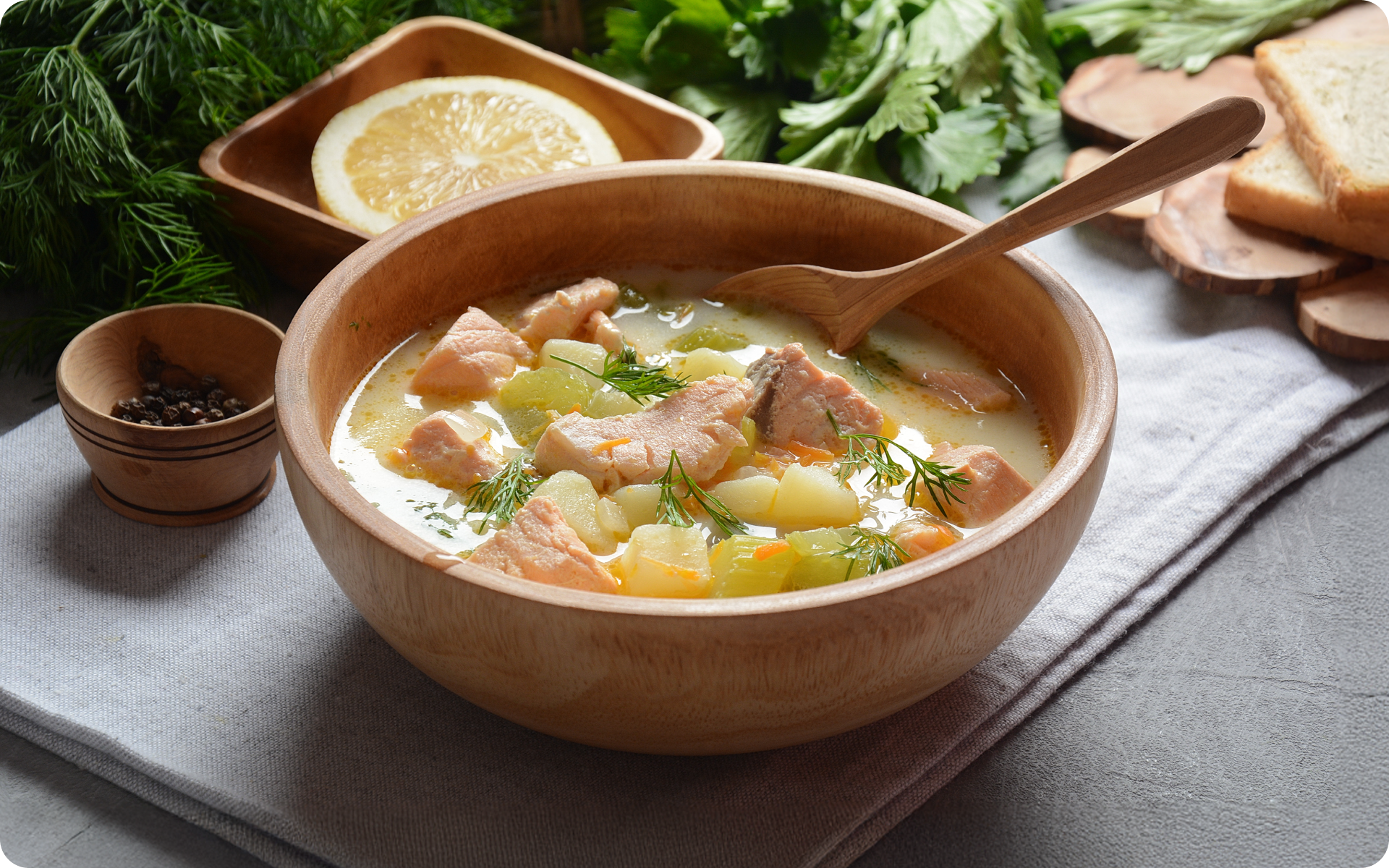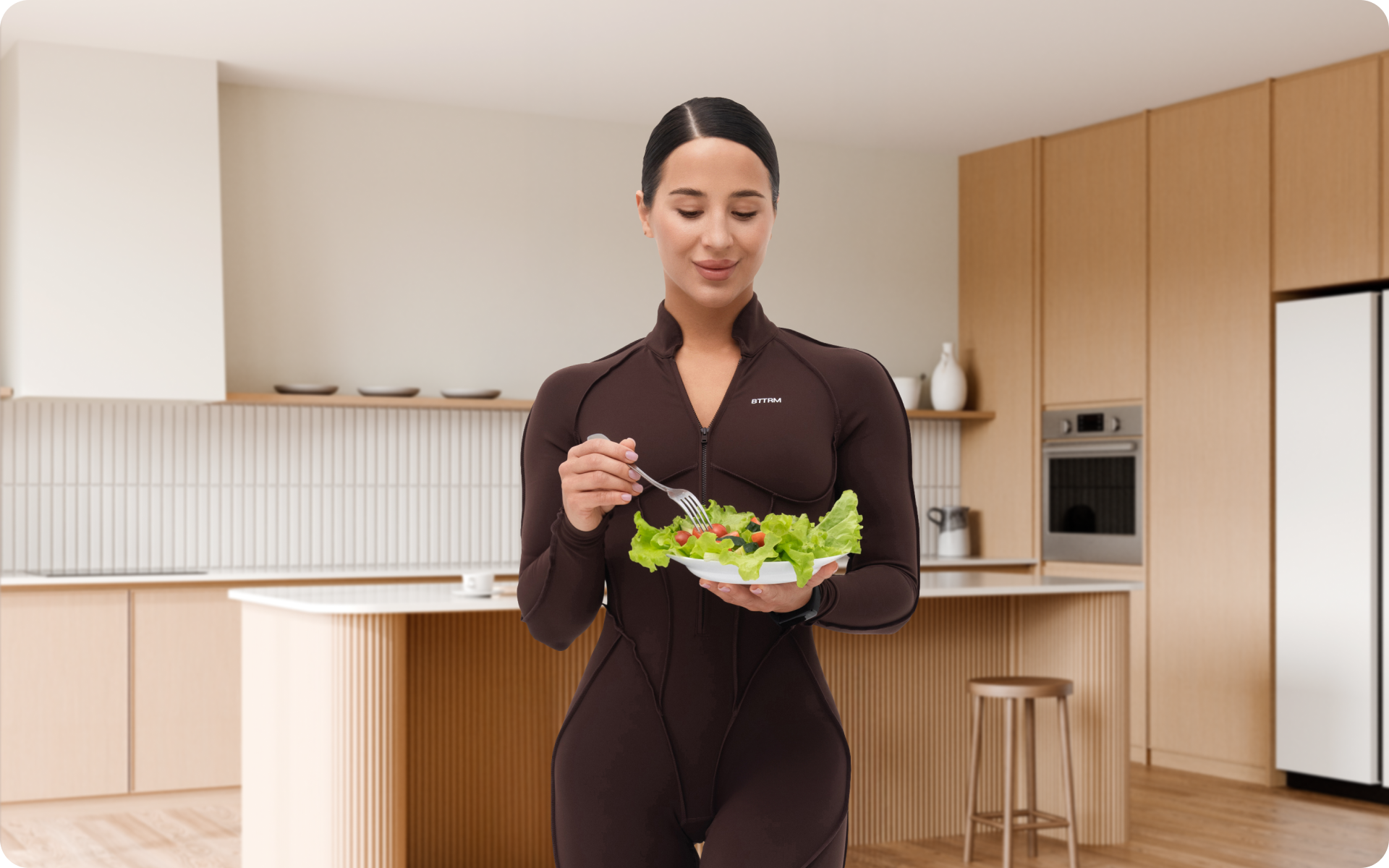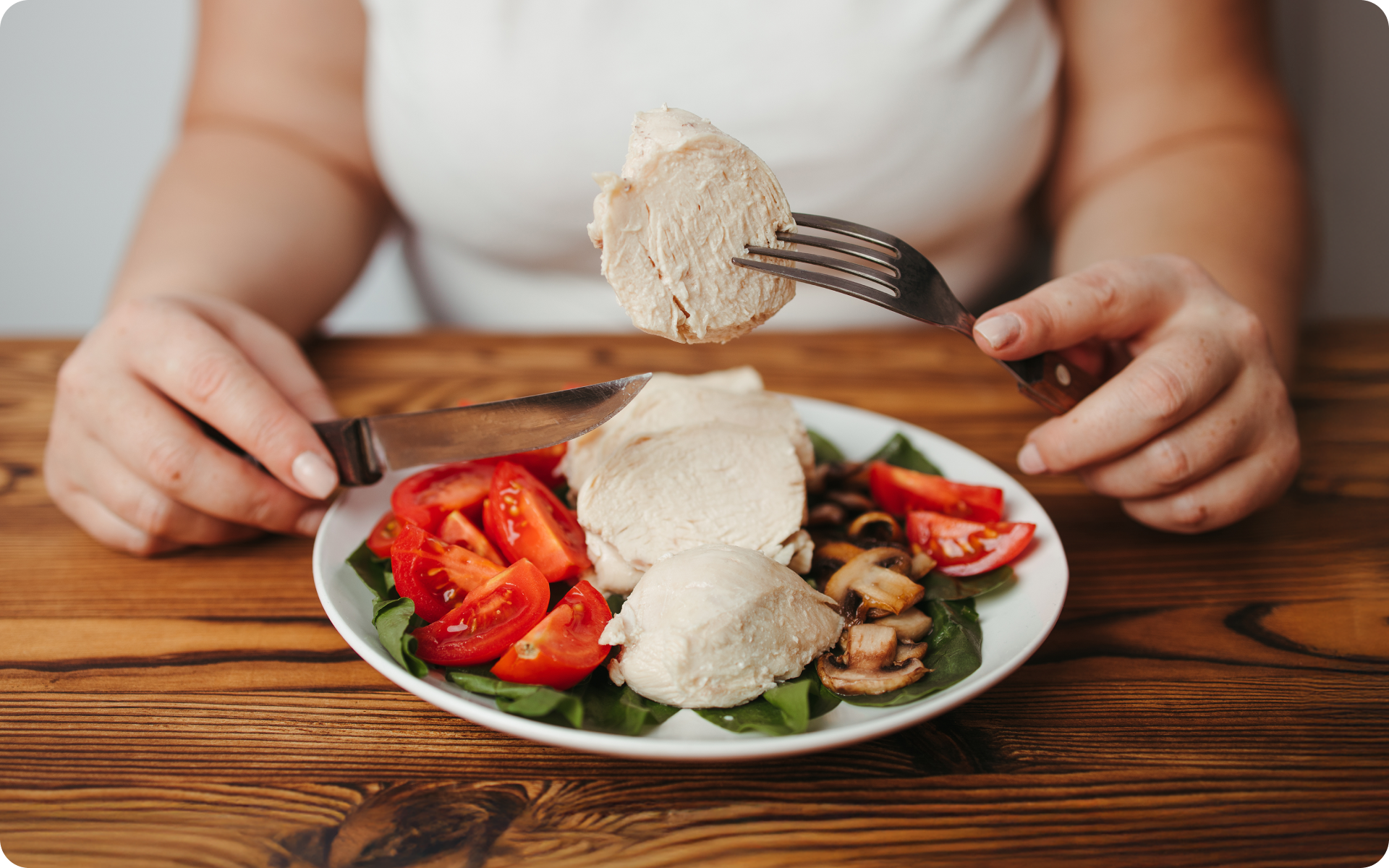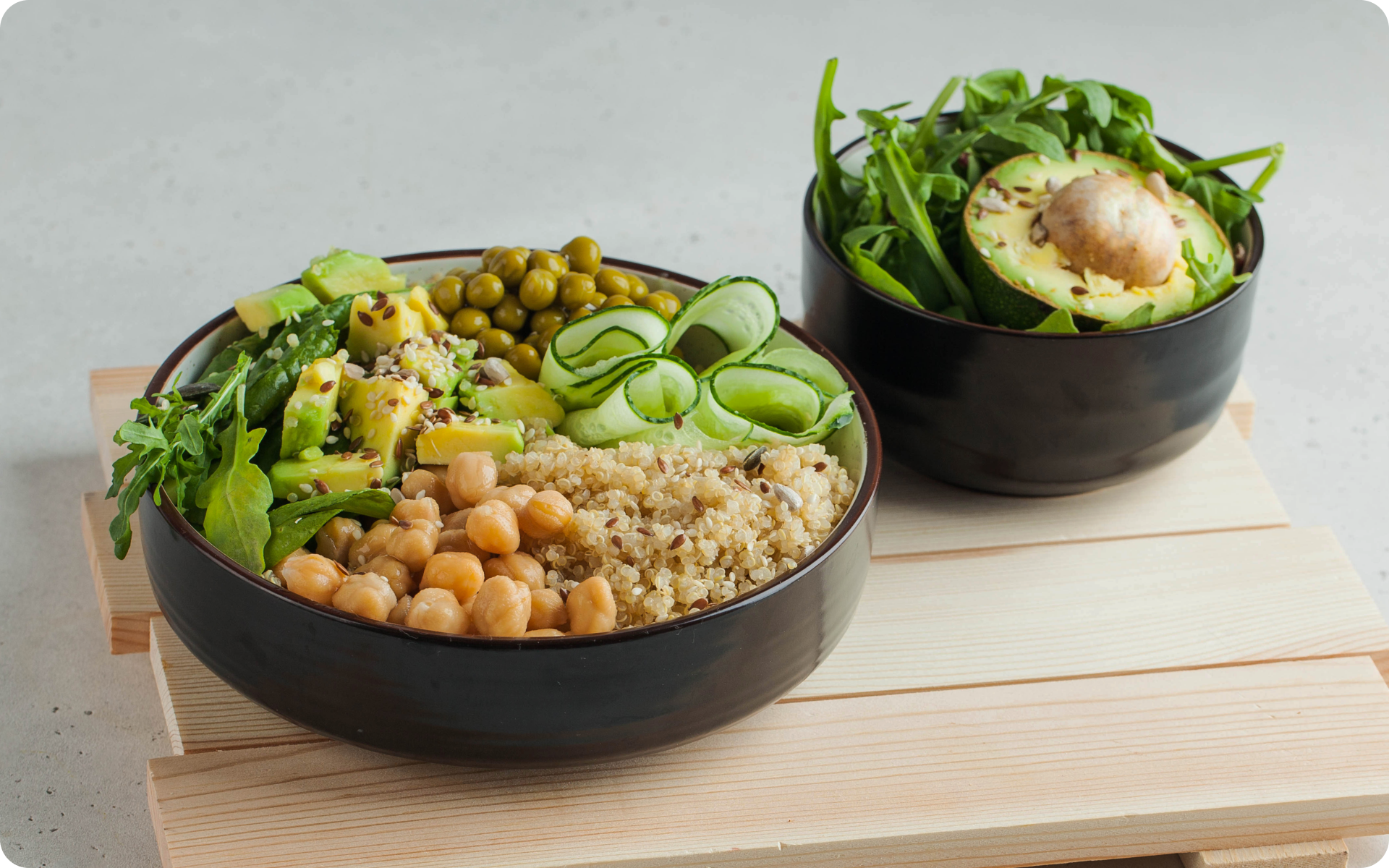Studies have shown that most people discover that they are pregnant between 5.5 weeks (at the earliest) and 10.6 weeks at the latest (1, 2). Once you discover that you are pregnant, one of the first lifestyle changes that you need to make (other than not drinking alcohol or using substances) (3) is sticking to a healthy, well-balanced diet.
A healthy diet is essential in every stage of life, but is especially so during pregnancy. Eating well during this time not only keeps you strong and healthy enough to be able to carry your child to term, but it also gives your baby all the nutrients it needs to develop and grow.
But what should a 7-week pregnancy diet look like? What foods should you be consuming during this time in your first trimester? What should you avoid? Read on to learn this and more.
7-Week Pregnancy Diet: Is Diet Really Essential During This Stage?
Yes, it is. A proper diet is quite essential at this time – probably more than you may assume.
According to the NHS, at 7 weeks pregnant, you may not even look pregnant, especially if this is your first pregnancy. However, this does not mean that there are no changes happening in your body.
At this stage, you may be experiencing some early pregnancy symptoms such as the dreaded morning sickness, aversions to and preferences for some tastes and smells, sore breasts, and a metallic taste in your mouth. Your baby is also about the size of a grape and measures around 10mm (1 cm) long from head to bottom (4).
These changes may seem small in the grand scheme of things and you may think that changing your diet doesn’t matter, but research has shown that this couldn’t be further from the truth.
1. In a study done on 787 women and their newborns in Spain, researchers found that the women who had a high-quality diet during their first trimester gave birth to heavier babies and babies with the right length for each stage of the pregnancy.
Researchers concluded that the better a woman ate in the first trimester, the higher the chances of the newborn having an appropriate birth size and the lower the risk of fetal growth restriction (5).
2. In another study that looked at the importance of nutrition in both pregnancy and lactation, researchers agreed that the better a woman ate during the first trimester and beyond, the better her health and that of her baby became during the pregnancy and continuing after the birth.
Researchers noted that women who had poor nutrition during the first trimester had a higher risk of abnormal fetal growth patterns (e.g. low birth weight), fetal growth restriction (babies that are too small), or macrosomia (babies that are too big).
They also noted that the better the mother’s nutrition, the lower the chances of her developing pregnancy disorders such as gestational diabetes mellitus, preterm birth, and obesity-related complications such as preeclampsia and gestational hypertension became (6).
3. In a more recent study looking at how dietary patterns in pregnancy affect the health of the mother and baby, researchers found that inadequate maternal nutrition increases the risk of pre-eclampsia, gestational diabetes, and cesarean section. In the child, the same can lead to neural tube defects, altered neurodevelopment, intrauterine growth restriction, macrosomia, or neonatal hypoglycemia.
Researchers also found that the adverse effects of poor dietary habits aren’t just restricted to the period between pregnancy and birth. They can also affect the child’s lifelong health by increasing their risk of obesity, type 2 diabetes mellitus, and other chronic conditions (7).
Seeing how important proper nutrition is during pregnancy, what foods should you include in your 7-week pregnancy diet? Here’s all you need to know
Looking for a way to break the vicious cycle of weight loss and tone up all the jiggly parts? Watch the extra pounds fly off and your muscles firm up with the BetterMe app!
7-Week Pregnancy Diet: What Are the Best Foods to Eat While Pregnant?
Before we get into the foods that should be in your 7-week pregnancy diet plan, we must first discuss calorie intake. Pregnancy isn’t a time when you should be considering calorie restriction. However, it doesn’t mean that you should overindulge either.
According to the Dietary Guidelines for Americans 2020 – 2025, women in their first trimester of pregnancy should not increase their calorie intake to more than what they were consuming pre-pregnancy (8).
Essentially, if you were consuming 1,800, 2,000, or 2,200 kcal before pregnancy, then you should continue consuming the same in the first trimester. You should increase your daily calorie intake in the second and third trimesters by an extra 340 and 452 calories, respectively (8).
Here are some suggestions for healthy foods to eat at the seventh week mark and throughout your pregnancy (9, 10)
Fruits and Vegetables
Fruits and vegetables play an essential part in a healthy pregnancy. Studies have shown that an inadequate consumption of fruits and vegetables during pregnancy increases the risk of ‘small for gestational age’ birth and the offspring’s risk for developmental delays after birth (11, 12).
Fruits and vegetables are also packed with essential vitamins, minerals, and fiber that are beneficial to the pregnancy. Here are some fruit and vegetable suggestions to eat while pregnant.
Citrus Fruits
Citrus fruits such as lemons and oranges are packed with vitamin C, an essential nutrient that helps with cell protection, skin health, collagen production, and wound healing (13).
In pregnant women, this vitamin helps with bone growth for the child and can help reduce the risk of placental abruption, as well as preterm and term prelabour rupture of membranes in the mother (14, 15).
One 2014 study found that the inhalation of lemons as a form of aromatherapy can be helpful in reducing nausea and vomiting in pregnant women (16).
Read more: Core Exercises Postpartum – How to Tighten your Midsection After Pregnancy
Folate-Rich Fruits and Vegetables
These include fruits such as grapefruit, papaya, grapes, bananas, strawberries, raspberries, and cantaloupe, as well as citrus fruits. Vegetables rich in folate include broccoli, brussels sprouts, and leafy green vegetables such as cabbage, kale, spring greens, and spinach.
Folate is important in pregnancy as it helps with the formation of healthy cells, some amino acids, and DNA. In addition, research has also shown that increased folic acid intake in the body can reduce pregnancy and birth abnormalities in both the mother and child (17). Folic acid reduces the risk of neural tube defects and all women who could become pregnant are advised to take a folic acid supplement that contains 400 micrograms of folic acid daily.
Studies specifically done on children have shown that children whose mothers took more folic acid during pregnancy had better neurocognitive development than those who took smaller amounts of the same. Not only are these children able to process information faster, but their language-social developmental quotient and their confidence intervals were also higher (18, 19).
Fruits and Vegetables Rich in Vitamin B6
Vitamin B6 is largely found in fish, beef liver, and other organ meats, but it can also be found in varying amounts in potatoes and other starchy vegetables, as well as fruit – apart from citrus (20).
Research has shown that not only does this vitamin help to alleviate nausea and vomiting during pregnancy but it also helps to reduce the incidence of pre‐eclampsia and preterm birth and can increase the birth weight of the child (21, 22).
Remember that while the examples of fruits and vegetables mentioned above are certainly important in a 7-week pregnancy diet and beyond, always make sure to consume as many fruits and vegetables as you can get your hands on. 
Proteins
Dietary protein is essential in everyday life, but more so in pregnancy. Research on this macronutrient and gestation shows that protein is important for the expansion of blood volume, growth of maternal tissues, the fetus and the placenta, and for the maintenance of a successful pregnancy (23).
If one consumes enough dietary protein during this time, studies have shown that there is a lower risk of a baby having a low birth weight, being small for gestational age, and having intrauterine growth restriction. Babies born to mothers with higher protein intake are also more likely to be born with higher weights (24).
Please note that inadequate protein intake can also affect your baby long after they are born. One study published in early 2023 found that children from mothers with a severely low protein intake are at a higher risk of developmental delays in relation to their communication, fine motor, and problem-solving skills (25).
Sources of pregnancy-safe high-protein foods include:
Lean Meats and Poultry
Lean meats are always better for your health than fatty options and poultry such as chicken, turkey, and duck also offer a variety of proteins to your 7-week pregnancy diet.
Seafood
The Dietary Guidelines for Americans 2020 – 2025 suggest limiting the consumption of fish to about 8 to 10 ounces a week on a 1,800-2,800-calorie diet (8).
Pregnant women are also advised to choose seafood that has lower mercury content, which means that fish such as salmon, trout, tilapia, cod, sole, sardines, shrimp, oysters, and other shellfish are safe to eat.
Fish are also rich in choline, iron, and zinc, which support the development of the baby’s spinal cord, immune system, and brain (26).
Legumes and Lentils
Legumes and lentils are rich in fiber, protein, iron, folate, and calcium. One study published in Nutrients that looked at the consumption of beans in pregnancy found that mothers who ate beans at least once a week had a healthier eating index as well as higher intakes of total fiber, insoluble fiber, soluble fiber, and folate than those who never ate beans (27).
Another study published in the International Journal of Reproductive BioMedicine found that maternal anemia is a relative risk in mothers throughout their pregnancy. However, maternal anemia in the first trimester leads to a much higher risk of infant low birth weight. Iron helps prevent anemia and more beans and lentils could help with increased infant birth weight (28).
Eggs
The consumption of eggs during pregnancy remains a contentious point of debate as many believe that eggs can be bad for both the mother and the child. However, this seems to be based on biased cultural beliefs and pseudo-science.
Research has shown that eggs in pregnancy are a good thing as they contain iodine, choline, and DHA unsaturated acids, which are good for the development of the child and the health of the mother (29, 30, 31).
Nuts and Seeds
In addition to being great sources of protein, nuts and seeds also provide both the mother and child with fiber, healthy fat, and minerals. Research has shown that when a mother consumes nuts and seeds ( as well as other proteins, plus fruits and vegetables), this can help prevent the likelihood of childhood allergies in her baby (32).
Complex Carbohydrates
Not only are complex carbohydrates a great source of dietary fiber, but studies have shown that a higher consumption of such food during gestation reduces the chances of the newborn being too small for their gestation age. A diet rich in complex carbohydrates helps improve the infant’s gut microbiome diversity, as well as their immune system, and also reduces their risk of obesity (33, 34).
If you tend to let yourself off the hook, raise the white flag when things get tougher than you expected, send yourself on an unconscious binge-eating trip – BetterMe app is here to help you leave all of these sabotaging habits in the past!
7-Week Pregnancy Diet: Foods to Avoid During Pregnancy
In the same way that you are required to abstain from alcohol during gestation as it can negatively affect your baby, you should refrain from eating some foods as they too can harm the fetus. Some of the foods you need to avoid include:
Raw or Undercooked Eggs
They increase the risk of salmonella food poisoning, which can be dangerous for both you and your baby (35). As mayonnaise also contains raw eggs, you should also eliminate it from your diet.
Fish High in Mercury
Avoid king mackerel, shark, ray, gemfish swordfish, and albacore tuna as they can have high levels of mercury (36). Your unborn baby is susceptible to the effects of mercury, especially during the first trimester (37), which can lead to developmental problems such as delayed walking and talking.
Caffeine
Limit your caffeine intake to the recommended maximum, which is 200 mg per day (or one 12-ounce cup of coffee). Caffeine has been linked to pregnancy complications such as miscarriages, low birth weight, and stillbirth (38). Be sure to consider all sources of caffeine in your diet and avoid or limit coffee and coffee flavored products, tea, energy drinks, chocolate, and chocolate products.
Raw Sprouts
Raw sprouts such as snow pea sprouts, alfalfa, mung bean, and radish are highly prone to salmonella, listeria, and E.coli bacteria. Listeriosis can lead to premature birth, miscarriages, and stillbirth (39) while E.coli and salmonella can lead to severe illness (40, 41).
Remember to avoid luncheon meats and soft cheeses due to the risk of listeria and other foodborne illnesses.
Read more: Calcium-Rich Foods for Pregnancy: Benefits and Examples
FAQs
Which fruit is best in the first trimester?
There is no one fruit that is a step above the rest in pregnancy during the first trimester. As suggested above, you should eat as many fruits as you can as often as you can in the first trimester and throughout your pregnancy.
What should you drink when pregnant?
Water is the best drink when pregnant. You can also drink healthy fruit juices, smoothies with no added sugars, and pasteurized milk. As mentioned above, avoid alcohol and drink coffee in moderation.
What exercises should you do when pregnant?
Nearly all kinds of exercises are acceptable during pregnancy, apart from contact sports such as kickboxing, judo, or squash. You are also advised to stay away from exercises that require you to lie flat on your back for too long as the bump can press on blood vessels in your back, cutting off circulation and making you feel faint (42).
Some easy exercises you can do starting in your first semester and continuing all the way to right before birth include yoga, pilates, walking, swimming, water aerobics, and dancing. Strength and weight training workouts are also great for pregnant women – just be sure to adjust the weights to avoid injury
The Bottom Line
The first trimester usually lasts from the first week to the end of the 12th week of pregnancy. Because this time is rather delicate for you and the developing fetus, making sure you have a healthy 7-week pregnancy diet takes away half the battle and stress from you. While the above tips can help you, be sure to make an appointment with your doctor for more advice on diet and exercise pointers to help you have a safe and successful pregnancy.
DISCLAIMER:
This article is intended for general informational purposes only and does not serve to address individual circumstances. It is not a substitute for professional advice or help and should not be relied on for making any kind of decision-making. Any action taken as a direct or indirect result of the information in this article is entirely at your own risk and is your sole responsibility.
BetterMe, its content staff, and its medical advisors accept no responsibility for inaccuracies, errors, misstatements, inconsistencies, or omissions and specifically disclaim any liability, loss or risk, personal, professional or otherwise, which may be incurred as a consequence, directly or indirectly, of the use and/or application of any content.
You should always seek the advice of your physician or other qualified health provider with any questions you may have regarding a medical condition or your specific situation. Never disregard professional medical advice or delay seeking it because of BetterMe content. If you suspect or think you may have a medical emergency, call your doctor.
SOURCES
- Trends in Timing of Pregnancy Awareness Among US Women (2018, ncbi.nlm.nih.gov)
- The frequency of pregnancy recognition across the gestational spectrum and its consequences in the United States (2022, ncbi.nlm.nih.gov)
- About Alcohol Use During Pregnancy (2024, cdc.gov)
- Week 7 (n.d., nhs.uk)
- Diet quality in early pregnancy and its effects on fetal growth outcomes: the Infancia y Medio Ambiente (Childhood and Environment) Mother and Child Cohort Study in Spain (2010, sciencedirect.com)
- The importance of nutrition in pregnancy and lactation: lifelong consequences (2022, ncbi.nlm.nih.gov)
- Exploring Lifestyle and Dietary Patterns in Pregnancy and Their Impact on Health: A Comparative Analysis of Two Distinct Groups 10 Years Apart (2024, mdpi.com)
- Dietary Guidelines for Americans 2020 – 2025 (n.d., dietaryguidelines.gov)
- Eat Healthy During Pregnancy: Quick Tips (2023, health.gov)
- Have a healthy diet in pregnancy (2023, nhs.uk)
- Associations of consumption of fruits and vegetables during pregnancy with infant birth weight or small for gestational age births: a systematic review of the literature (2014, ncbi.nlm.nih.gov)
- Fruit and vegetable consumption before and during pregnancy and developmental delays in offspring aged 2 years in Japan (2022, ncbi.nlm.nih.gov)
- Vitamin C (2021, ods.od.nih.gov)
- Vitamin C supplementation in pregnancy (2015, ncbi.nlm.nih.gov)
- The Roles and Mechanisms of Actions of Vitamin C in Bone: New Developments (2016, ncbi.nlm.nih.gov)
- The Effect of Lemon Inhalation Aromatherapy on Nausea and Vomiting of Pregnancy: A Double-Blinded, Randomized, Controlled Clinical Trial (2014, ncbi.nlm.nih.gov)
- Folic Acid Supplementation and Pregnancy: More Than Just Neural Tube Defect Prevention (2011, ncbi.nlm.nih.gov)
- Effects of maternal folic acid supplementation during the second and third trimesters of pregnancy on neurocognitive development in the child: an 11-year follow-up from a randomised controlled trial (2021, bmcmedicine.biomedcentral.com)
- Prenatal folic acid supplement/dietary folate and cognitive development in 4-year-old offspring from the Japan Environment and Children’s Study (2023, nature.com)
- Vitamin B6 (2023, ods.od.nih.gov)
- Pyridoxine (vitamin B6) supplementation during pregnancy or labour for maternal and neonatal outcomes (2015, ncbi.nlm.nih.gov)
- Vitamin B6 (Pyridoxine) (2023, ncbi.nlm.nih.gov)
- Protein and Amino Acids (n.d., ncbi.nlm.nih.gov)
- Dietary protein intake during pregnancy and birth weight among Chinese pregnant women with low intake of protein (2022, ncbi.nlm.nih.gov)
- Maternal protein intake in early pregnancy and child development at age 3 years (2023, nature.com)
- Advice about Eating Fish (2024, fda.gov)
- Maternal Bean Consumption during Pregnancy: Distribution and Nutritional Outcomes (2023, ncbi.nlm.nih.gov)
- Maternal Anemia during pregnancy and infant low birth weight: A systematic review and Meta-analysis (2017, pubmed.ncbi.nlm.nih.gov)
- Egg consumption in pregnancy and infancy: Advice has changed (2019, researchgate.net)
- The potential of a simple egg to improve maternal and child nutrition (2018, ncbi.nlm.nih.gov)
- Exploring Attitudes Toward Egg Consumption During Pregnancy in Kenya (P10-054-19) (2019, sciencedirect.com)
- Nuts, vegetables, fruits, and protein dietary pattern during pregnancy is inversely associated with risk of childhood allergies: a case–control study (2024, nature.com)
- Types of Carbohydrates Intake during Pregnancy and Frequency of a Small for Gestational Age Newborn: A Case-Control Study (2019, ncbi.nlm.nih.gov)
- A maternal higher-complex carbohydrate diet increases bifidobacteria and alters early life acquisition of the infant microbiome in women with gestational diabetes mellitus (2022, frontiersin.org)
- Salmonella and Eggs: From Production to Plate (2015, ncbi.nlm.nih.gov)
- Fish consumption in pregnancy and fetal risks of methylmercury toxicity (2010, ncbi.nlm.nih.gov)
- Maternal fish intake during pregnancy, blood mercury, and child cognition at age 3 years in a US cohort (2009, ncbi.nlm.nih.gov)
- Impacts of Caffeine during Pregnancy (2021, ncbi.nlm.nih.gov)
- Listeriosis during pregnancy (2017, pubmed.ncbi.nlm.nih.gov)
- Escherichia coli bacteraemia in pregnant women is life-threatening for foetuses (2014, pubmed.ncbi.nlm.nih.gov)
- Food-borne illnesses during pregnancy (2010, ncbi.nlm.nih.gov)
- Exercise in pregnancy (2023, nhs.uk)


